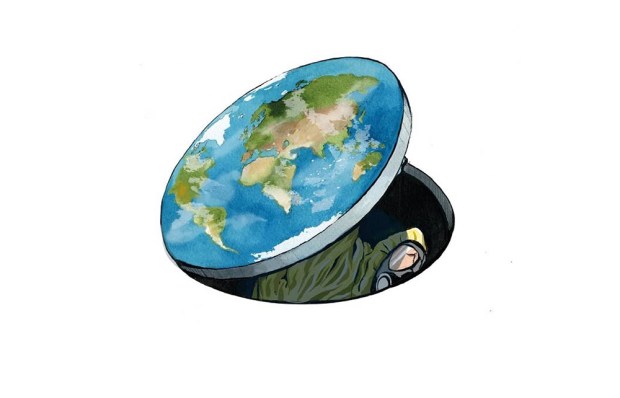You almost certainly haven’t heard of the Trusted News Initiative (TNI), although you probably should have. It’s a BBC-led consortium of the world’s most powerful news, social media and technology companies that seeks to cleanse the internet of ‘disinformation’. It carries out this mission by doing its best to discredit sites that challenge the prevailing narrative on topics like lockdowns, Covid vaccines, electoral fraud, the Ukraine war and climate change. It was founded in 2019 by Jessica Cecil, a senior BBC executive who, in 2021, was part of the Counter Disinformation Policy Forum, a shadowy group of ‘experts’ convened by the Department for Culture, Media and Sport to monitor criticism of the government’s pandemic response.
The TNI is currently embroiled in an anti-trust lawsuit in the US brought by various independent news publishers who have accused the BBC, Reuters, which Washington Post and the New York Times, among others, of conspiring with their TNI partners – Facebook, Twitter, LinkedIn, Google and Microsoft – to suppress heretical content using techniques such as shadow-banning, de–platforming and manipulating search results. The plaintiffs argue that these high-profile, legacy media companies are abusing their dominance of the market-place to stop consumers deserting their ‘trusted’ brands for online upstarts. The defendants maintain that their only motives are safeguarding public health, protecting democratic elections, defending the West from its enemies and saving the planet.
I won’t comment on the merits of the lawsuit, but in the ongoing, titanic struggle between the mainstream media and alt-media, the former has taken quite a beating in the past week or so. I’m thinking of the reputational damage suffered by the BBC and its TNI partners due to their reporting of the explosion at the al-Ahli hospital. Within minutes, they faithfully regurgitated the propaganda of Gaza’s ministry of health that the hospital had been razed by an Israeli airstrike, killing several hundred civilians. This, in spite of the fact that the ministry of health is run by Hamas.
‘The Israeli military has been contacted for comment,’ said the BBC’s Jon Donnison in his report from Jerusalem. ‘But it is hard to see what else this could be, really, given the size of the explosion, other than an Israeli airstrike.’ Reuters took the same line, posting on Twitter: ‘BREAKING: An Israeli air strike killed hundreds of Palestinians at a Gaza City hospital crammed with patients and displaced people, health authorities in the besieged enclave said.’
The Washington Post was no better: ‘Video of what Palestinian authorities say was an Israeli strike on al-Ahli Hospital in Gaza shows the moment an explosion hits the hospital grounds. The video, verified by the Washington Post, captures the first sounds of an explosion and then a blast.’ The New York Times, which prides itself on publishing ‘all the news that’s fit to print’, tweeted: ‘Breaking News: An Israeli airstrike hit a Gaza hospital on Tuesday, killing at least 200 Palestinians, according to the Palestinian Health Ministry, which said the number of casualties was expected to rise.’
We now have good grounds for thinking almost every detail of these reports was wrong. The blast was in the car park and left the hospital largely undamaged; the number of casualties has yet to be confirmed, but was almost certainly lower than the figures claimed by ‘health authorities’; and according to numerous intelligence analysts, including those in our own security services, the explosion was caused by a damaged rocket launched from within Gaza by Islamic Jihad, a terrorist group allied to Hamas.
In other words, the Gaza hospital story was a textbook example of passing on disinformation: false information intended to mislead. Not only that, but it was harmful disinformation – the very thing that these august news companies claim to be so concerned about. Thanks to their misleading reporting, angry crowds gathered outside US and British embassies across the Middle East, a Berlin synagogue was attacked and anti-Semitic incidents in the UK increased several hundredfold. Most significantly, a peace summit between Joe Biden and various Arab leaders was cancelled by its Jordanian hosts, scuppering any chance of de-escalating the conflict.
If I were Jessica Cecil, I’d be thinking seriously about winding up the TNI. When it comes to pumping out genuinely dangerous lies, no one can hold a candle to the BBC and its ‘trusted’ allies.
Got something to add? Join the discussion and comment below.
Get 10 issues for just $10
Subscribe to The Spectator Australia today for the next 10 magazine issues, plus full online access, for just $10.
You might disagree with half of it, but you’ll enjoy reading all of it. Try your first month for free, then just $2 a week for the remainder of your first year.















Comments
Don't miss out
Join the conversation with other Spectator Australia readers. Subscribe to leave a comment.
SUBSCRIBEAlready a subscriber? Log in